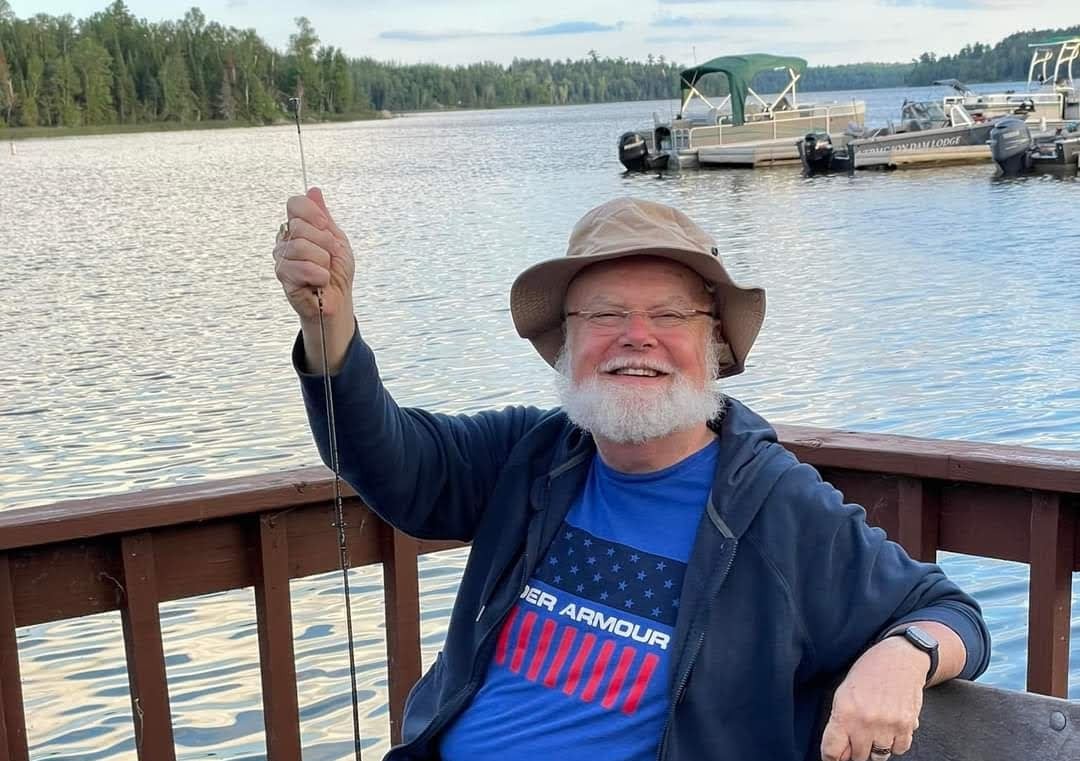
Learning to say goodbye
For me, the most challenging part of cholangiocarcinoma was not all the chemo and disruption but dealing with my mortality. When I was diagnosed in November 2021, I asked my doctor about the prognosis. He said I had six months to 2 years to live. Those words still echo in my mind and feed the emotional spiral of despair and anger.
I began seeing a therapist to talk about the anger, despair, and cancer journey rather than talking at length with my wife, who was full of anxiety and fear. Talking this out helped me get over the bridge to some form of acceptance. My wife and I scheduled a second opinion with Mayo Rochester to coincide with an annual Jesuit retreat I have been doing for several years.
I came to the retreat full of anxiety but promised to stay on track with the retreat goals. By the fourth day, I had done well despite chemo fatigue. I kept up with the group, but my heart was full, and I requested some time with the house director to discuss my plight. All my fear came out, and many tears evidenced my anxiety.
We began by discussing gratitude. I went through what I was thankful for, and then he asked, what is one good thing that has come out of this terminal cancer diagnosis? I said I was praying more, so my cancer brought me closer to God. Then he recited my gratitude list to me: my wife, a cancer survivor herself, understands the uncertainty, my son and his wife and grandkids, and my accomplishments at work. We discussed each one again from the perspective of being grateful. I had brought my wife into the church, our son was a faithful head of household, our grandkids were healthy and happy, and I had created many new companies and jobs for people all over the country in my work reforming healthcare. All of these things are graces, and at 72, I had a lot to be thankful for, so why be afraid?
The retreat director made me see that these many graces had been given, and now I needed to reflect on a good life lived and finish my mission. I asked, “What mission?” He said I was lucky; you know death is imminent, and you can say goodbye in many ways. He illustrated his point with what Jesus did with his apostles when he was going to leave them. He forgave them their sins; he washed their feet to show humility. It took me several minutes to connect this with my situation. He then said, “How do you want to be remembered?” The light went on!
He said there are family and friends who will remember you, but how do YOU want to be remembered? Some are people I will never see again, yet I want to thank them for caring, praying, and contributing to my life’s journey.
I have discovered that through all this physical fatigue, there is new spiritual energy bolstered through prayer and sacraments, and I can deal better with the many challenges on this journey. I am finding something special I can do for people I have known all my life. Some item, story, or action that relates specifically to them will be something I want them to remember me by. This spiritual energy is bottomless, helps me get through the loss of physical strength, and gives me endurance for the mission.
